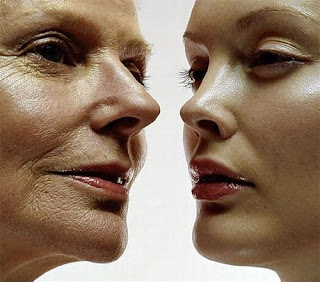More than a great wardrobe or a skilled hand with make-up, healthy glowing skin is the key to turning heads.
Just ask Kelly Campbell, a Los Angeles public relations consultant and mom. She regularly gets stopped by strangers complimenting her on her seemingly poreless, lit-from-within complexion.
The key to that gorgeous skin? She was born with it.
“Honestly, I’ve always been lucky to have good skin," Campbell says. “Except when I was pregnant and I broke out from all the hormones, I’ve never had trouble with my skin.”
Yes, some people win the hereditary lottery when it comes to good skin, just as others are blessed with the kind of metabolism that lets them eat vast amounts of pizza, chocolate, and Chunky Monkey without gaining an ounce.
“Not all skin is created equally,” says Paula Bourelly, MD, a dermatology professor at Georgetown University. “You can’t underestimate the value of genetics.”
But genes are just the starting point. Beautiful skin is also about good skin care habits, practiced day in and day out.
Here are, from top dermatologists and Campbell herself, the secrets to stunning skin.
No. 1 and No. 2: Smoking No, Sunscreen Yes
Imagine two people starting out with the same exact DNA. One smoked and sunbathed, the other avoided both. Would that make a difference in the appearance of their skin?
Researchers have the answer to that, and it’s a resounding yes.
A team of experts led by plastic surgeon Bahman Guyuron, MD, of Case Western Reserve University analyzed photographs of the faces of 186 pairs of identical twins taken at the Twins Day Festival in Twinsburg, Ohio. The twins had also filled out detailed questionnaires about their lives and daily habits.
It turns out that siblings who smoked and spent lots of time outdoors without wearing sunscreen looked years older than the brother or sister who shunned cigarettes and tanning. They had more fine lines, deeper and more plentiful wrinkles, and their skin was more mottled.
Bourelly isn’t surprised. “Many of the things that my patients complain about -- dull, rough skin, and uneven skin tone -- are related to chronic sun exposure,” she says, “and studies have shown that smoking is associated with premature wrinkling.”
Her straightforward advice: Wear a broad-spectrum sunscreen that protects against both UVA and UVB rays with an SPF of 30 or higher, even on cloudy days, and reapply every two to three hours you’re outdoors.
And, for the sake of your overall health as well as your appearance, don’t smoke.




